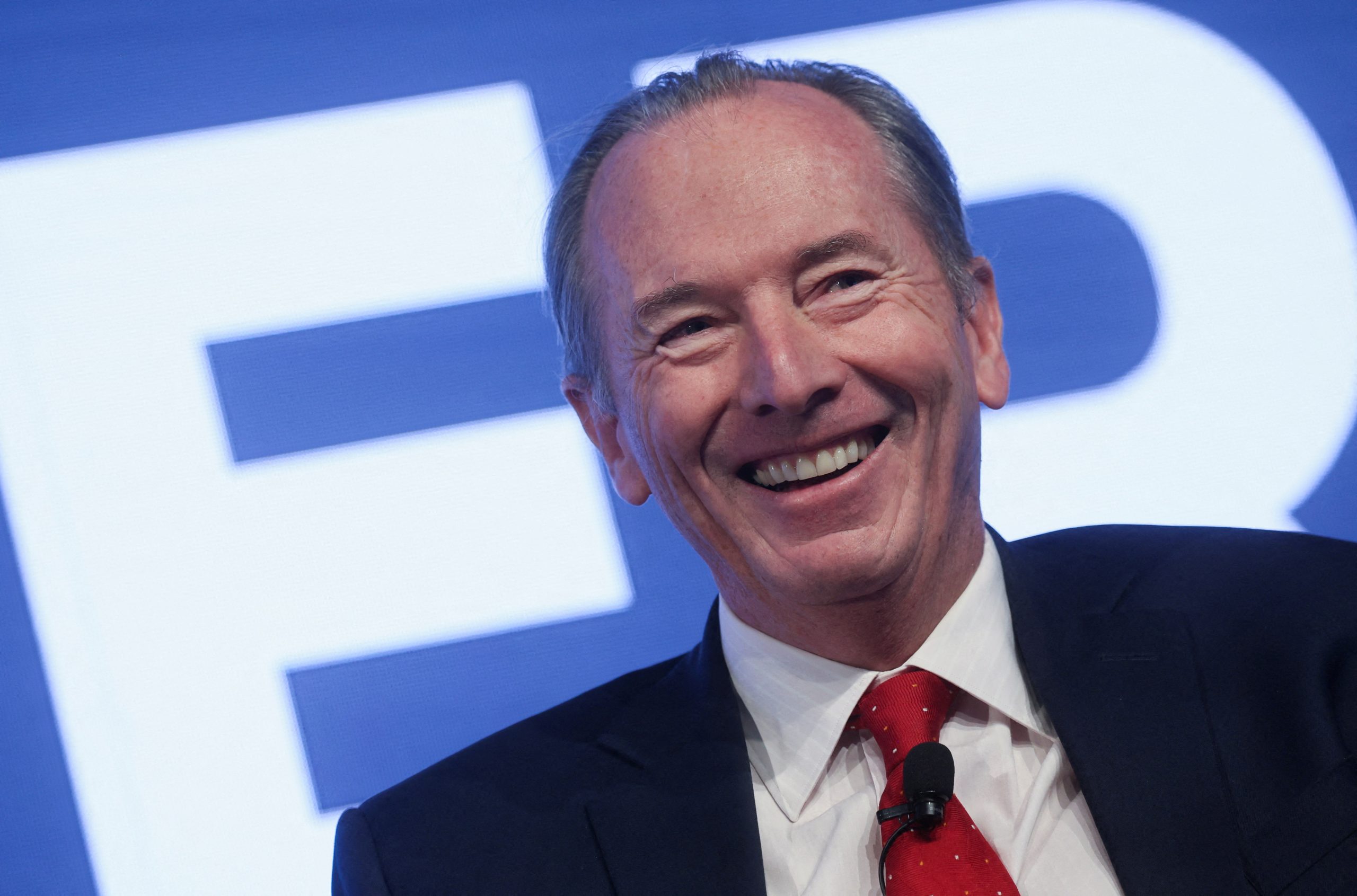
[elfsight_social_share_buttons id=”1″]
Morgan Stanley’s James Gorman plans to step down as chief executive within a year but stay on as executive chairman, drawing to a close 13 years in the role during which he built the Wall Street firm into a wealth management powerhouse.
Gorman, 64, told shareholders on Friday the bank’s board has identified three strong candidates to succeed him, without naming them.
Co-presidents Ted Pick and Andy Saperstein, and head of investment management Dan Simkowitz, are widely seen as contenders for the top job.
“I definitely have no plans to go out like Logan Roy,” Gorman told shareholders in his trademark dry humor, referring to a character in an HBO television show in which the CEO dies without having chosen a successor.
While Gorman was often asked about succession in recent years, the announcement on Friday was unexpected and sets up the final stretch of a race among potential candidates. The three most often cited are white men, however, which could renew the debate about diversity on Wall Street.
Gorman’s decision also puts a spotlight on some of the other long-serving CEOs at the largest U.S. banks, such as JPMorgan Chase & Co’s Jamie Dimon and Bank of America Corp’s Brian Moynihan.
Gorman said that he will become executive chairman once a new CEO is chosen, a board title seen as more heavily involved in the company’s affairs than non-executive director roles.
The role surprised some people internally, one senior Morgan Stanley banker said. Another Morgan Stanley source said the title was to indicate continuity. Gorman’s predecessor John Mack stayed on for two years as chairman when the Australian-born executive took over as CEO.
Defending the bank’s record on diversity, the source said Morgan Stanley has a female chief financial officer, who is younger than the executives seen as potential successors. The executive committee is also more diverse, with women and people of color represented, the source said.
Some analysts praised Gorman’s tenure at Morgan Stanley but said although the succession is likely to be orderly, investors may be disappointed.
Veteran bank analyst Dick Bove said Gorman’s retirement is a blow to the company. “The failure to announce a successor will tear the company apart if it is not done quickly,” Bove, a bank analyst at Odeon, wrote in a note.
Morgan Stanley shares were down 2.2% in afternoon trading.
TRANSFORMING MORGAN STANLEY
Gorman has refocused the Wall Street firm into a more diversified company that is less reliant on what have been its traditional strengths — trading and investment banking — since being appointed CEO in 2010. The less volatile business of wealth management accounted for 45% of the firm’s revenue in the first quarter.
The diversification helped the bank’s share price take a lead over its closest rival, Goldman Sachs Group Inc, which decided to largely stick to its knitting coming out of the financial crisis of 2008.
“Building out their wealth management division has been a real boon to the company, and they bested Goldman in that practice,” said Kim Forrest, chief investment officer of Bokeh Capital Partners.
Gorman struck major deals including the acquisitions of money manager Eaton Vance, online broker E*Trade, and stock-plan manager Solium Capital.
He was also the key architect behind Morgan Stanley’s purchase of Smith Barney, a brokerage and investment adviser that became a cornerstone of the bank’s wealth management arm.
Gorman “has done a masterful job of transforming Morgan Stanley into the model that most major banks want to be, with a focus on asset management, financial advisers,” said Art Hogan, chief market strategist at B Riley Wealth in Boston.
Still, it has not all been plain sailing for Gorman.
The bank earlier this month said it’s in talks to resolve a more than year-long investigation by U.S. regulators into its block trading practices.
Reuters has reported that the U.S. Securities and Exchange Commission has been probing whether financial executives may have broken the rules by tipping off hedge funds ahead of large sales of shares that the bank has managed.
The lender was also caught up in industry probes by the SEC into employee communications on messaging platforms that had not been approved by the company, which resulted in a $200 million fine.
POTENTIAL SUCCESSORS
The announcement set off speculation on Wall Street about who among the potential successors was the most likely to get the job.
Mike Mayo, banking analyst at Wells Fargo, noted that Saperstein, 56, could be the “leading candidate given the growth of wealth, increase in client assets.”
KBW analyst David Konrad said while Saperstein runs “the most prominent business,” Pick, 54, co-president and head of the institutional securities group, maybe a “slightly more likely choice” because he was “instrumental in turning around” the bank’s fixed-income, currencies and commodities business.
Simkowitz, the oldest of the three at 58, is head of investment management at Morgan Stanley and co-head of the firm’s strategy and execution.
Copyright 2023 Thompson/Reuters
